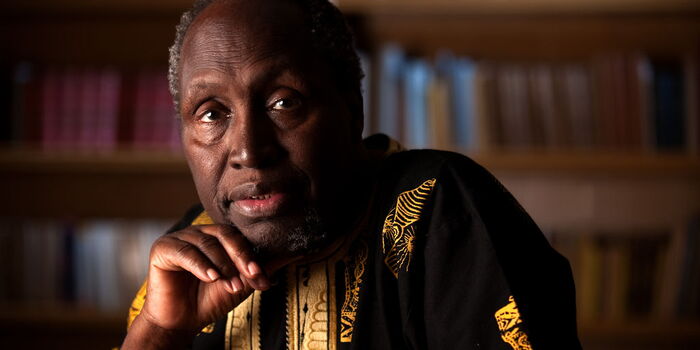Acclaimed Kenyan author, academic, and global literary icon Ngugi wa Thiong’o has passed away.
His daughter, Wanjiku wa Ngugi, confirmed the news on Wednesday morning, May 28, 2025, in a statement released to the public.
“It is with a heavy heart that we announce the passing of our dad, Ngugi wa Thiong’o, on the morning of Wednesday, May 28, 2025,” the statement read.
“He lived a full life and fought a good fight. As per his last wish, let us celebrate his life and his work.”
The cause of death was not disclosed, but the family noted that funeral and memorial arrangements would be shared at a later time. Ngugi’s son, Nducu wa Ngugi, will serve as the family spokesperson during the period of mourning and commemoration.
Ngugi, who had been living in California, United States, at the time of his death, spent much of his later life in exile or semi-exile. His work—renowned for its bold critiques of neocolonialism, corruption, and cultural imperialism—often placed him at odds with Kenyan authorities.
One of the pivotal moments in his career came in the 1970s, when his politically charged play, "Ngaahika Ndeenda" (I Will Marry When I Want), was banned by the government. He was arrested shortly afterward and imprisoned without trial at the Kamiti Maximum Security Prison.
From that point on, Ngugi’s commitment to writing in his native Gikuyu language and his staunch opposition to authoritarianism solidified his position as a revolutionary voice in African literature.
Over his lifetime, Ngugi produced a remarkable body of work, including "A Grain of Wheat," "The River Between," "Decolonising the Mind," "Petals of Blood," and "Devil on the Cross." His academic contributions and unwavering dedication to decolonizing African literature have inspired generations of writers across the continent and beyond.
Though he lived far from home in his final years, Ngugi’s influence remained deeply rooted in Kenya’s cultural and political fabric. Tributes from across the world are expected to pour in, honouring a man many regard as Africa’s most important literary voice of the 20th and 21st centuries.
His death marks the end of an era, but his words, convictions, and the legacy of his thought continue to shape global conversations on language, identity, and justice.

